|
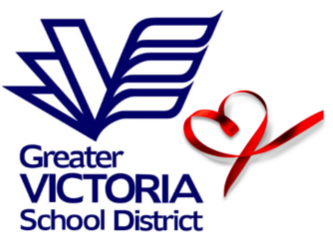 | Social Emotional Wellness Snapshot The Social Emotional Wellness Snapshot is focused information that will be offered five times in the school year. The purpose is to support leadership capacity and increase awareness and understanding of social emotional learning and its importance in a healthy community.
|
| |
|
|
|
The focus of this Snapshot will be on RELATIONSHIP SKILLS
|
|
|
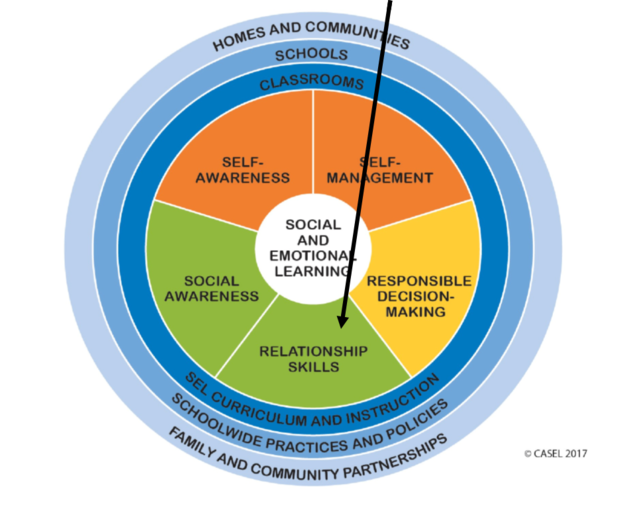
|
SEL is the process through which we acquire and effectively apply the knowledge, attitudes, and skills necessary to:
- understand and manage emotions
- set and achieve positive goals
- feel and show empathy for others
- establish and maintain positive relationships
- make responsible decisions
CASEL (Collaborative for Academic and Social Emotional Learning
|
|
|
|
|
The practice of educator self care has been a popular topic lately and for good reason. Being an educator can be very rewarding but it is can also be extremely difficult, draining and overwhelming. Therefore self-care is an important component in an educator’s tool kit. Self care can look like:
· Consistent sleep
· Proper nutrition
· Regular exercise
· Hobbies
· Pampering yourself
· Keeping your mind sharp
· Building and maintaining social support. .....
|
|
|
|
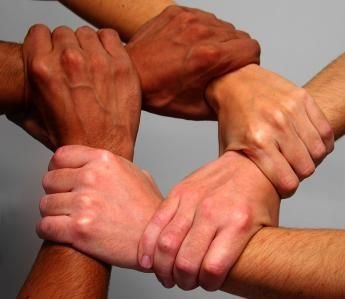 | The last strategy of building or maintaining social support can often be overlooked when stress is high. Instead of reaching out we retreat, isolate ourselves and suffer in silence.
A strong social support network can be critical to help you through the stress of tough times, whereas the lack of social support can lead to isolation and loneliness. So how do we build and maintain our social support in the context of our work life?
|
| |
|
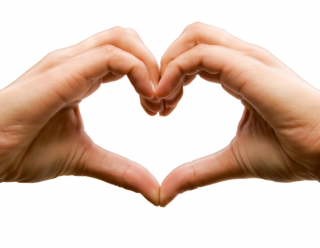 |
DON'T GO IT ALONE
Work to cultivate a school culture where supporting each other is the norm. Building and relying upon small support groups, staff teams or work friendships can help make the work more manageable. When we realize we’re not alone, the burden gets lighter. Take a walk with a colleague during lunch. Begin meetings with some breathing exercises. Take time to compliment the efforts of others. It’s important that these support networks remain a positive resource. Positivity is contagious and peer support makes a strong foundation for your hard work.
|
|
|
|
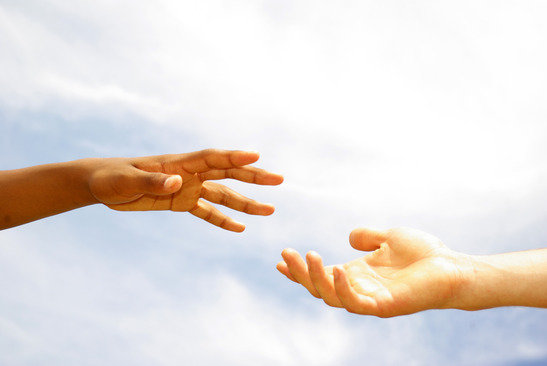 | ASK FOR HELP
Asking for help when we are suffering is incredibly difficult. We’re taught to be self-reliant, to be rugged individualists, to take care of ourselves. Here's the thing, at some point, even the best of us need help. Knowing when to ask for help and understanding why you need it is ultimately the most important thing. Support your colleagues to do the same. When we as communities learn how to ask for and give help and support, we’ll be able to take care of each other.
|
| |
|
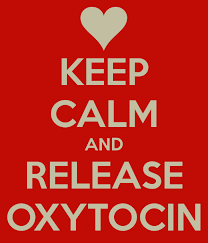 |
THE SCIENCE BEHIND HELPING ONE ANOTHER
Humans are social animals, and we are wired to help one another. We now understand that both the giver and receiver benefit from the relationship. Neuroscience has demonstrated that giving is a powerful pathway for creating more personal joy and improving overall health. Research has confirmed that the hormone oxytocin is released when we help and support one another. Oxytocin “the cuddle hormone” has a powerful effect on the brain and the body. When oxytocin begins to flow, bonding increases, social fears are reduced and trust and empathy are enhanced.
|
|
|
|
|
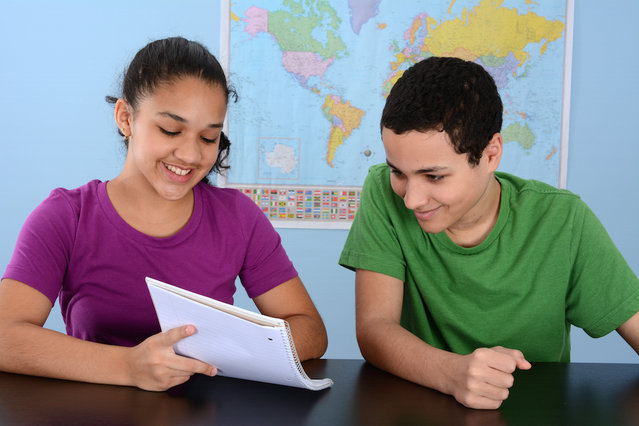 |
Do you ever ask students to pair up, find a partner, or get into a group of three, and the same student is left standing without a partner again and again? As educators there are many ways to shift this cycle! We want every student to feel and know that they belong throughout each instructional
activity. Julie Causton from Inclusive Schooling offers the following teacher tested ideas:Clock buddies: Have students draw a clock and make “appointments” with 12 different students on their clock. When the teacher calls out 2:00 buddy, everyone has a pre-assigned partner.
Seasonal partners: Select a spring, summer, winter and fall partner for each student. When the teacher says “fall partner” they simply have to go find the correct partner.
Vocabulary match up: Match words like “election” with its definition to find your partner.
|
|
|
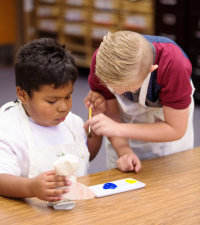
| Playing card partners: As students enter the room give them a playing card. Have them find someone with the same suit, color or number.
Content area match-up: Province and capital, math problem & solution groups, color match, number match, letter match.
Rock, paper, scissors: An easy way to divide a class in half.
Elbow partners: Who is next to your elbow?
These ideas work because students are not left to select their friends or make choices about who they want to partner with and who they don‘t. Instead, the task is a cognitive one: find the match!
|
|
|
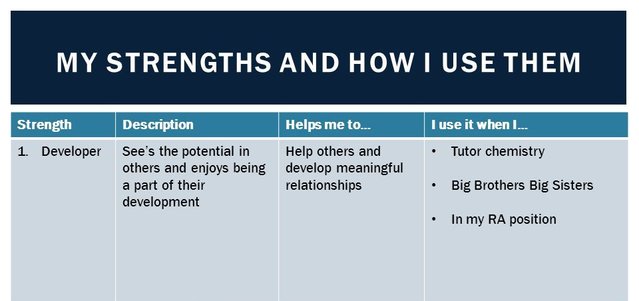
| Additional Strategies
Strength Based Jobs: Have an expert wall where students list their strengths in terms of how they can help the community (i.e.spelling support, math support, organizational support, cheering up support).
Lunch Bunches: Lunch groups or lunch bunches can be designed around a particular student who needs more social support or friendships.
|
|
|
|
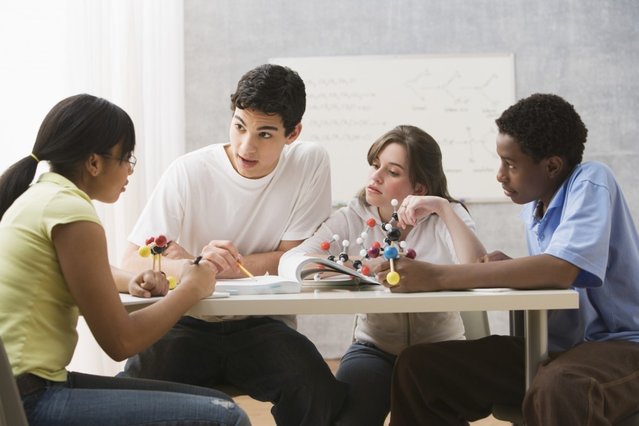
| Peer Support: Incorporate peer support into the day by having a rule where students first “ask three before me” or check with three other students before checking in with the teacher.
Make Quick Connections Throughout the Lesson: Work multiple opportunities for peer connections into a lesson (Pair Share, Turn and Talk).
These activities not only build connections, they also create happier learning environments.
|
| |
|
|
|
Leading researchers across character education, emotional intelligence, health and mental health promotion, neuroscience, social emotional learning (SEL) and mindsets have agreed that social, emotional and cognitive capacities are intertwined and interdependent. This means that academic learning has its basis in social emotional learning, and that development in one area supports the other.
|
|
|
|
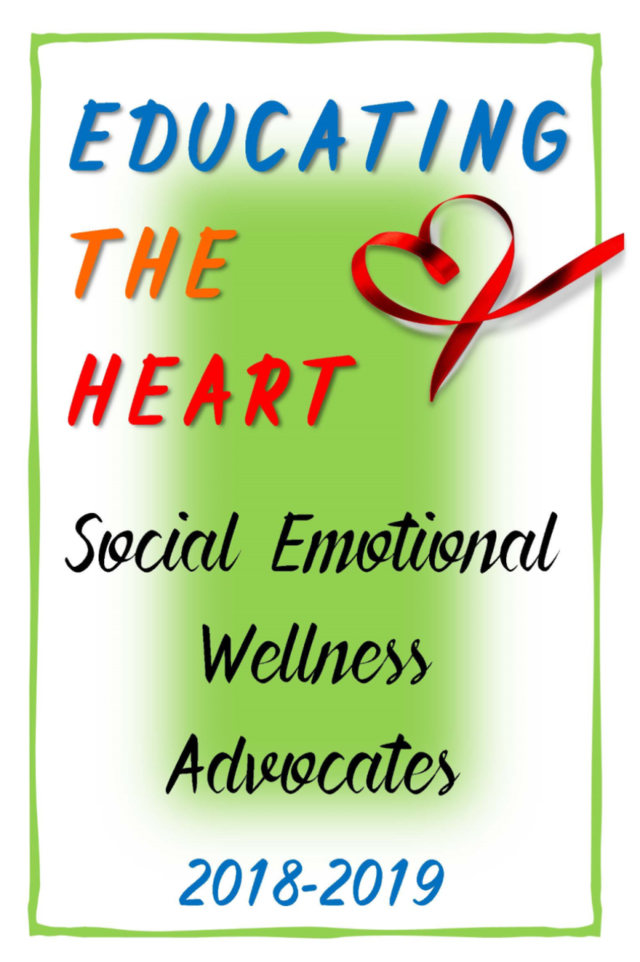
|
They also agreed that SEL yields results. Meta-analyses shows academic gains, up to 3.5 years after a students’ last SEL intervention, as well as improved behavior and life outcomes. In summary, SEL is a an integral component of comprehensive education.
Our Social Emotional Wellness Advocates are doing amazing work in our schools! The work of each advocate varies and is based on the needs of their school.
Some common focuses include Second Step, Taxi Dog, Staff Wellness, Ross Greene and Collaborative Problem Solving, Mental Health Literacy, Spirit of Alliances, Mindfulness, Yoga and Nature based Learning.
Thank you advocates for all of your work, it is appreciated!
|
| |
|
|
|
|
|
|
| Watch for next SEW Snapshot in May 2019!!
|
| |
|
|
|